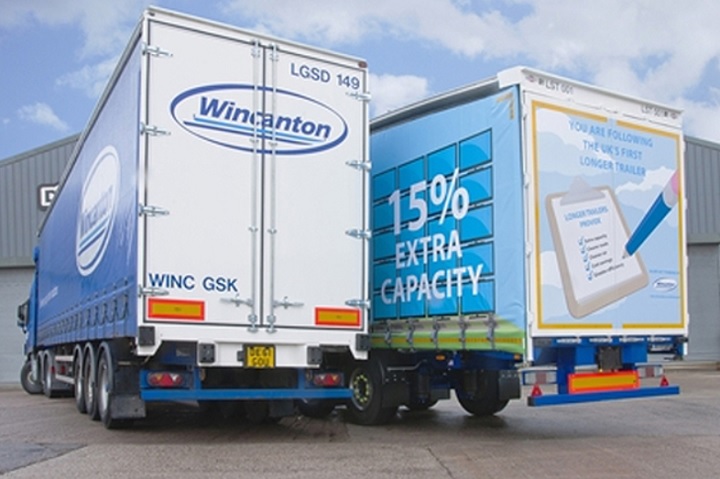
The Government is being urged to ‘seize the opportunity’ to improve safety and reduce lorry emissions, by making the use of longer semi-trailers a permanent fixture on UK roads.
Since 2012, the DfT has been trialling longer-semi-trailers (LSTs) to answer questions about safety, cost and emissions.
The latest evaluation of the trial, published on 2 March, shows LSTs – which are two metres longer – continue to have a positive impact on both pollution and collision rates.
Per kilometre, the evaluation estimates LSTs have been involved in around 55% fewer personal injury collisions and casualties than the average HGV.
Meanwhile, approximately 45 million vehicle kilometres and 37,333 tonnes of carbon dioxide emissions have been saved since the trial began.
The Freight Transport Association (FTA) says failing to make LSTs permanent is ‘holding back an opportunity to significantly reduce carbon emissions’.
It is calling on the Government to seize the opportunity and make their use permanent ‘as soon as possible’.
Phil Lloyd, head of engineering and vehicle standards policy at FTA, said: “The benefits LSTs provide to both the environment and the economy have been made evident in the government’s study.
“The UK’s roads are congested and carbon emissions from road transport remain too high; with LSTs able to carry more goods per journey than traditional HGVs, they present an efficient and environmentally-prudent method of freight transportation.
“The quantity of freight that needs to be moved is relatively fixed – if we can move the same amount with fewer journeys, the better for the environment, the economy and other road users.”
In January 2017, the DfT announced the trial had been extended from 10 to 15 years to provide a longer reporting period and make the final results ‘more robust’.
At the end of 2018, 2,194 LSTs were on the road gathering and submitting data.
Comment on this story